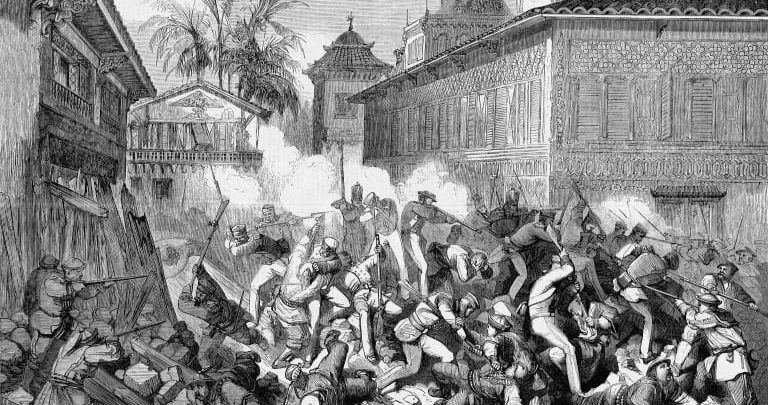AllAsia and OceaniaResolved
What was the Taiping Rebellion?
A civil war in China taking place between 1850 and 1864 established the Manchu led Qing dynasty. The Taiping rebellion had many reverberating effects, and claimed more lives than the entirety of World War I.

Arguably the most important event in 19th century China, the Taiping rebellion lasted 14 years, spread across 14 provinces and had a human cost of about 20 million people. The rebellion was a revolt against the Qing dynasty and found its roots in civil unrest over harsh economic conditions. China was not new to revolts, they were popular and served as catalyst to social and economic change to end suffering. Because of this, Chinese authorities were always suspicious of uprisings and quickly combated groups that challenged traditional notions of family and state.
In 1847, Hong Xiuquan of a southern province of China failed Imperial examinations and became delirious for a month. After the delirium had subsided, he came to an epiphany that led him to believe he and his believers were destined to conquer China, destroy Manchu rulers and establish the Heavenly Kingdom of Great Harmony- the Taiping Tianguo.
Followers of Taiping took beliefs from many different schools of thought. Although many reflected traditional Confucianism, others were from ancient writings that described ideal systems which had never been practiced. The blend of ideas was very powerful, and the new belief systems promised an entire new livelihood for the citizens. The revolutionary ideas introduced notions such as common property, land reform, gender equality and abstinence from stimulants.
Xiuquan gathered his followers from poor and outcast populations, and together they gradually built a militia and political organization which quickly took foothold across the while country. In 1851, hostilities began when the central government’s Green Standard Army attacked Taiping followers in Guangxi. Subsequently the Taipings began marching north to escape the Qing forces which were closing in on them. By 1853, the Taipings captured the city of Nanjing and declared it the capital of the Taiping kingdom.
The movement gained such a strong momentum that it took the central government over 15 years to defeat them. Finally, in 1864, the Taiping rebellion was finally put down. As late as the 1950s, parts of central China still had not yet fully recovered from Taiping-era destruction.




